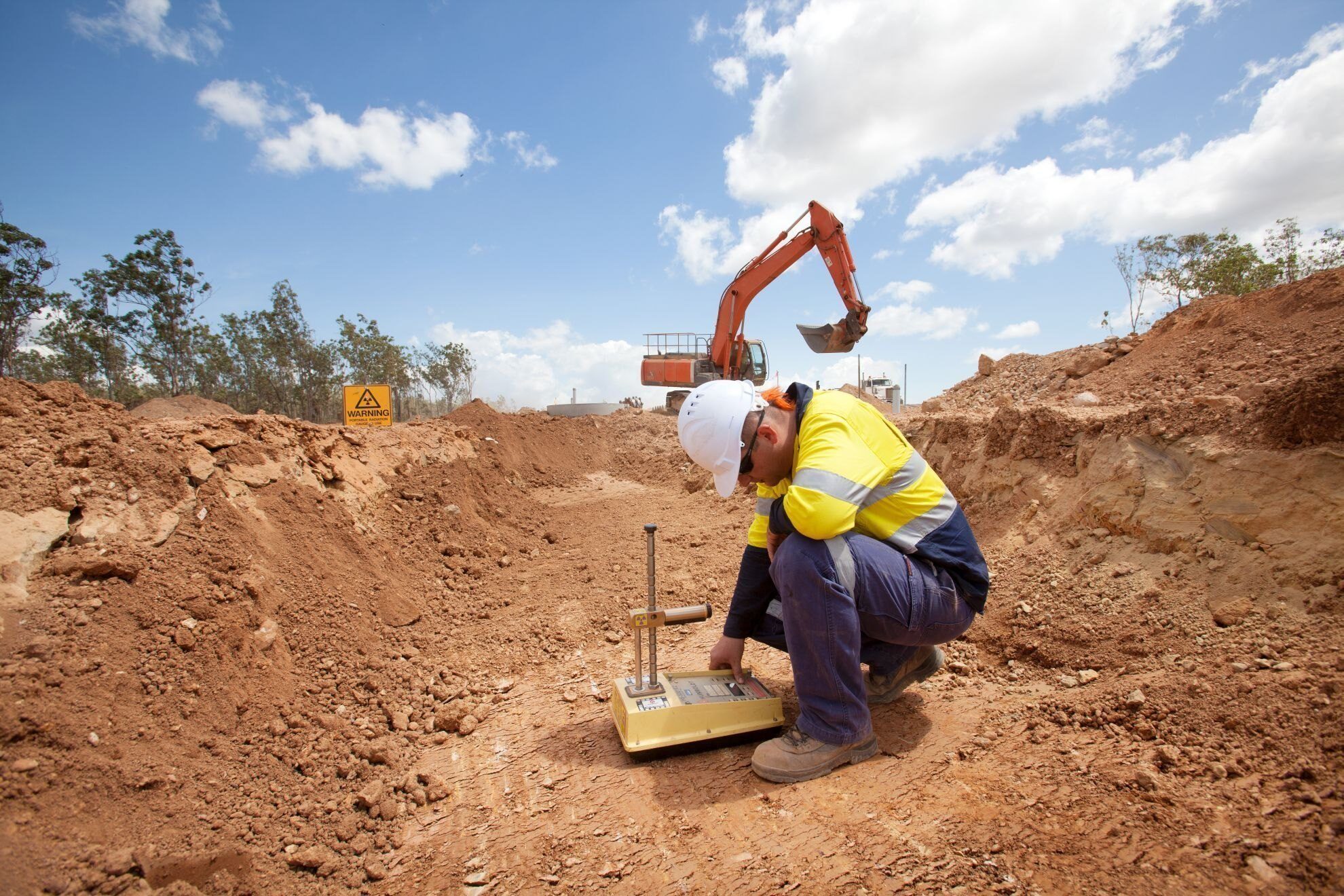9 Easy Facts About Geotechnical Engineering For Construction Projects Shown
9 Easy Facts About Geotechnical Engineering For Construction Projects Shown
Blog Article
What Does Geotechnical Engineering For Construction Projects Mean?
Table of ContentsThe Single Strategy To Use For Geotechnical Engineering For Construction ProjectsA Biased View of Geotechnical Engineering For Construction ProjectsSome Of Geotechnical Engineering For Construction ProjectsThe Basic Principles Of Geotechnical Engineering For Construction Projects 4 Simple Techniques For Geotechnical Engineering For Construction Projects
Consequently, throughout the examination, it is essential to drill at the called for depth and the required variety of holes as per the recommendation of the Canadian Foundation Design standard. Occasionally, the owner may conserve some Geotechnical Investigation expense however wind up investing more than the prepared for during the building expense.The obligations of the geotechnical professional entail giving material screening for construction support. Geotechnical Engineering for Construction Projects. Geotechnical designers analyse all the field examination records to make certain that building and construction is going on based on the job specification. During building, a confirmatory test for dirt compaction is done on-site to guarantee that no future settlement happens
After the concrete is put -7 days and 28 days- tests are performed on concrete samples accumulated from the site to ensure that the concrete put satisfies the layout standard. Asphalt core is taken after the Asphalt is laid and compacted to validate that it meets the style criterion. All laboratory test records are analysed by the Geotechnical Designer to make sure that it satisfies the project requirements.
Get This Report about Geotechnical Engineering For Construction Projects

Geotechnical engineering plays a crucial duty in making sure the security of building tasks. Discover just how it impacts style and overall job success. Geotechnical engineering is an important branch of civil design that concentrates on comprehending the behaviour of earth materials, such as soil and rock. It entails evaluating subsurface conditions to ensure that a building's foundation or framework is secure and secure.

For a trustworthy structure and a smooth building and construction process, trust to supply the expertise you require. Get in touch with to get expert advice and geotechnical solutions tailored to your following project.
Some Known Questions About Geotechnical Engineering For Construction Projects.
When starting a land growth task, understanding the ground underneath your feet is as vital as the structures you prepare to construct over it. Our Geotechnical Engineering group analyse the ground, ensuring it appropriates for the proposed advancement while giving you with the info required to meet your project objectives.
Geotechnical Design considers the development of the ground, as it is the building blocks for all jobs. Where structures require to be made with regard to the ground conditions; ground problems (e.g., soft ground) may call for strengthening depending on the size of the intended structure. Before structure, you require official statement to understand concerning the groundwater, dirt structure, and liquefaction probability of your land.
For sites that are not linked on the neighborhood authority framework added site examinations would be needed to offer technical inputs for on-site stormwater and wastewater. We have actually experienced Geotechnical Engineers based in each workplace, supporting your geotechnical needs across the country. Connect to us to discuss just how we can sustain your next job.
These reports are tailored to fulfill the details needs of a task and include design parameters and guidance for the building and construction anchor of a series of man-made structures. As supplying working as a consultant solutions covering locations such as incline stability and load-bearing capabilities for different products, these engineers undertake research and development activities to improve approaches, equipment, materials expertise and evaluation covering entire lifecycles.
Geotechnical Engineering For Construction Projects Fundamentals Explained

Rates of pay typically enhance as your expertise and abilities expand, with standards aiming to a graduate starting wage of between 18,000 and 28,000 per year in the UK. This increases to 26,000 to 36,000 with a couple of years of experience and afterwards reaching 40,000 to 60,000+ for elderly, chartered or master engineers.
Nonetheless, with the appropriate application it is feasible to master the career and gain entrance to a challenging yet gratifying and crucial profession. A geologist would certainly need to re-train to end up being a geotechnical engineer, although there is lots of cross-over in between the two careers, which could make this much easier - Geotechnical Engineering for Construction Projects. Geologists require to have an understanding of soils, rocks and other products from a clinical perspective, while geotechnical engineers tale their knowledge of matters such as soil and rock technician, geophysics and hydrology and use them to design and environmental jobs
When beginning out, these designers will tend to work on much less intricate projects, developing up expertise and experience ready for even more tough work later on. Geotechnical engineers often tend to specialise in specific locations as they expand in experience, concentrating on specific frameworks such as trains, roads or water. These engineers likewise work with renewable resource, offshore and onshore oil and gas, nuclear power, and extra.
The 6-Second Trick For Geotechnical Engineering For Construction Projects
The time taken to come to be a geotechnical engineer depends on where you are based, where you research study and what degree of education and learning you want to acquire prior to getting in the important source office. Generally-speaking it takes 3-4 years to reach the standard demands to start a career as a geotechnical designer.
These operations enable professionals to assess a host of dirt mechanics including weight, porosity, void-to-solid bit proportion, leaks in the structure, compressibility, optimum shear toughness, bearing ability and deformations. If the framework requires a deep foundation, designers will certainly make use of a cone penetration test to approximate the amount of skin and end bearing resistance in the subsurface.
When analyzing a slope's balance of shear stress and shear strength, or its capacity to stand up to and undergo movement, rotational slides and translational slides are commonly thought about. Rotational slides fail along a rounded surface, with translational slides taking place on a planar surface. An expert's objective is to identify the problems at which an incline failing can happen.
Frequently, searchings for recommend that a site's soil must be dealt with to boost its shear strength, stiffness and permeability prior to design and building and construction. When it comes time to outline structure strategies, professionals are significantly focused on sustainability, more specifically how to reduce a structure's carbon footprint. One method has been to change 20 percent of a foundation's cement with fly ash, a waste product from coal fire nuclear power plant.
Report this page